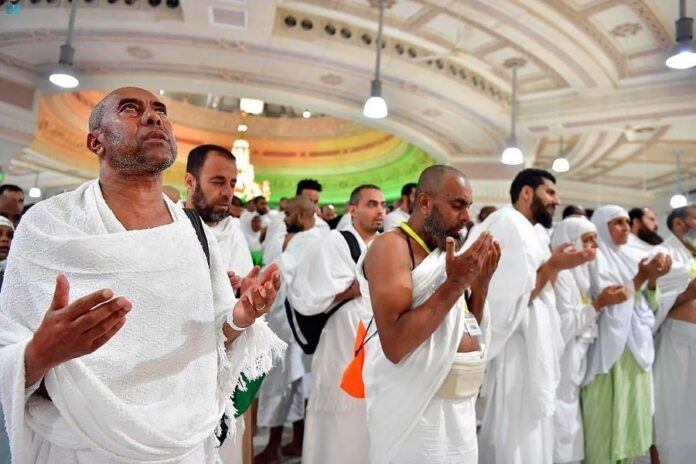Since the religious celebrations of Zil Hajj began last week, hundreds of thousands of Muslims have rushed to the Saudi holy city of Makkah for the Hajj trip.
Friday marks the formal start of one of the biggest yearly Islamic gatherings in the world, and Saudi Arabian officials are attempting to maintain the emphasis on prayers.
Last Monday, Tawfiq al-Rabiah, the Saudi minister in charge of religious pilgrimages, issued a warning, saying that “no political activity” will be allowed.
One of the five pillars of Islam is that every Muslim who has the means to do so must make the Hajj at least once.
Approximately 1.5 million foreign pilgrims had entered the oil-rich nation as of late Monday, with the majority traveling by flight, according to the official Saudi Press Agency.
Over 1.8 million pilgrims finished the lengthy, multi-day hajj rituals last year. Official data indicate that almost 90% came from abroad, mostly from Asia and other Arab countries.
According to Umer Karim, a University of Birmingham expert on Saudi politics, Israel’s waning military actions against Hamas militants in Gaza have “created a lot of anger in [the] broader Muslim world,” making this year’s hajj a “test” for Saudi officials.







